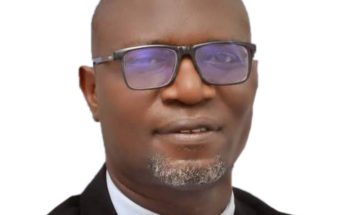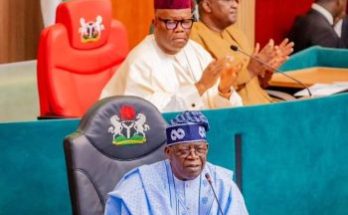About a fortnight ago, Nigeria’s House of Representatives passed a resolution following a motion on the need for urgent intervention to prevent the imminent loss of some communities in Cross River state to the Republic of Cameroon, due to noted lapses in boarder demarcation arrangements. JOSHUA EGBODO writes on the issues
Attention drawn
With the loss of a substantial portion of the Bakassi Peninsula to the neighboring Republic of Cameroon, Nigerians have continued to grieve over the unfortunate development, especially, those who in the immediate affected area, lost their ancestral lands known to be their abodes for centuries.
On October 10, 2002, the International Court of Justice (ICJ) ruled that the proprietorship of the Bakassi Peninsula belongs to Cameroon, due to an agreement between the governments of Nigeria and Cameroon during the Nigerian civil war.
It was for that purpose of unpalatable loss that many saw the need for urgent move against the latest development. Communities to be largely affected if the current mixup, is not corrected would include Danare and Biajua communities in Boki Local Government Area of Cross River state.
Members of the House of Representatives from the state, in a jointly sponsored motion on the matter prayed for immediate action, which was unanimously adopted.
Earlier losses
With the ICJ verdict which saw the ceding of parts of the oil-rich Bakassi peninsula to Cameroon, Nigeria’s Supreme Court in 2012 ruled that Cross River state had no right of ownership of over 76 oil wells anymore, due to the loss of its littoral status and so cannot benefit from the derivative funds accruable to oil producing states.
In moving the motion on behalf of his colleagues from Cross River state, Hon. Victor Bisong Abang said “The ICJ ruling decided the retracing of the Cameroon-Nigeria International Boundary line from the Lake Chad region (Yola) to the Atlantic Ocean (Bakassi), subsequently, the United Nations (UN) set up two Committees to implement the judgment which led to the establishment of the Cameroon-Nigeria Mixed Commission (CNMC), made up of representatives from Nigeria, Cameroon and officials of the United Nations.
“The fieldwork which involves the location of the boundary points and placement of boundary pillars by the judgment was undertaken by a Joint Technical Team (JTT), a sub-body of the Cameroon-Nigeria Mixed Commission, with both countries’ representatives on the JTT while technical expertise is supplied by a foreign contractor and paid for by the CNMC.
“Cognizant that the field exercise or demarcation conducted by the JTT must be an adopted demarcation in any sector considered valid and conclusive by the CNMC, the Anglo-German agreement of the Cameroon-Nigeria boundary of 12 April 1913, indicated a total of 114 boundary pillars from the Lake Chad region (Yola Adamawa state) to Agbokim in Etung Local Government of Area of Cross River state, planted by the Anglo-German had serial numbers written on the pillars, six of the boundary pillars fall within the Danare community in Boki Local Government Area of Cross River State, the international boundary its include; 109, 110, 111, 112, 113, and 113A respectively.
“The Anglo-German agreement clearly states that the contextual pillar 113A is 9.6 Km from pillar 113 into the forest leading to pillar 114 that fall in Agbokim in Etung Local Government Area”.
The problem, concerns
As explained by the lawmakers, the challenge as it were is the planned adoption of alternate means of resolving the demarcation, which might be detrimental to Nigeria’s interest. Abang therefore expressed worry that the JTT has not located pillar 113A and not tracing pillar 113A, they are planning to adopt a straight-line method and which would lead to losing Danare and Biajua communities and about 7,000–10,000 hectares of land in the Boki Area of Cross River to the Republic of Cameroon.
He argued that under the principles of federalism, the Federal Government has the responsibility to protect the territorial integrity of all federating units, and not unilaterally cede, sell, mortgage, or allocate any part of a federating unit to another country without the consent of the House of Representatives, adding that failure of a concerted effort by the JTT to trace a critical pillar point that will determine the correct boundary line has generated controversy.
“It is a worrisome situation, that even when the team understands that they are lacking in their assignment because a critical pillar is yet to be retraced, instead of the team going back and doing the needful, they decided to propose a straight-line projection to close the gap between pillar 113 to 114.
“If urgent actions are not taken by the federal government, the entire
country will lose the good people of Danare, Biajua in Boki LGA, and some parts of Obanliku LGA of Cross River state to the Republic of Cameroon. Cross River state may lose the good people of Danare and Biajua communities in Boki LGA, and their ancestral heritage of the land that they have protected all their lives, to the Republic of Cameroon against their wishes and desires.
“The missing pillar 113A may have been deliberately removed by the
Cameroonian government in their plot to take over the land and the people of Danare and Biajua communities, that if a country like Nigeria keeps losing her people, lands, and natural and mineral resources to her neighbouring countries, one day we may not have a place called Nigeria”.
Lawmakers in support
Just like it were, when portions of the Bakassi Peninsula slipped off the hands of Nigeria’s control, many lawmakers in the opinion of followers of the new challenge, patriotically asked for an urgent move to forestall another loss of territories. Supporting the motion in debate, many members of the House, including Yusuf Adamu Gagdi from Plateau, Fredie Agbedi from Bayelsa, Ahmed Jaha (Borno) and Beni Lar Plateau said the motion was timely, insisting that the parliament cannot sit down and watch the territorial boundary of Nigeria lost to another country.
The mandate
The House was to subsequently adopt the motion, with a resolution to raise an Ad hoc committee with a mandate to take the necessary steps. The panel was expected to engage the Director General of the National Boundary Commission and Surveyor General of the Federation, and others relevant with a view to finding answers to the question on why pillar 113A has not been found, and also to investigate and assess the case of potential land encroachment by the Cameroonian Government and consult with legal experts, land surveyors, and other relevant professionals to ensure a thorough understanding of the technical aspect involved in ending the encroachment.
Deputy Speaker of the House, Hon. Benjamin Kalu who presided over the plenary that day agreed to the urgency of the matter before referring the resolution to an Ad-hoc committee, which he said would be made of technocrats in such matters.
The committee
True to its promises, the House followed up with constitution of the Ad hoc committee, headed by Plateau State lawmaker, Hon. Beni Lar. The committee after its inauguration swung into action, as disclosed by Lar last Thursday. The A d hoc Committee on International Boundary Dispute Between Nigeria and Cameroon agreed that there was need for a swift action on the part of the Nigerian government.
Chairman of the Ad hoc Committee, Beni Lar while addressing reporters, said the panel was deeply concerned about the potential loss of a significant landmass and Nigerians residing within it to the Cameroon Republic, even in face the of alarming previous loss of the Bakassi Peninsula, saying the development underscores the urgent need for immediate action to outline the correct border stretch between the two countries.
While urging all stakeholders to coordinate a swift resolution of the dispute in order to prevent loss of land and citizens to the Republic of Cameroon, the lawmaker said the committee recognized the gravity of the situation and the profound implications it holds for Nigeria’s territorial integrity and the welfare of its citizens, adding that a swift resolution is imperative to prevent history from repeating itself and to protect the rights and interests of Nigerians living in the affected areas.
“The Committee wish to express its appreciation and commendation for the relentless efforts of the following organizations and individuals who have worked tirelessly to ensure Nigeria is not short-changed in the border dispute”, she stated, as she commended the Office of the National Security Adviser (NSA), National Boundary Commission, Office of the Surveyor General, Office of the Attorney General, The Nigerian Armed Forces, Ministry of Niger Delta Affairs and the Governor of Cross River state for their relentless efforts so far, to ensuring that Nigeria is not short-changed in the border dispute.
“The Ad-Hoc Committee on the Nigeria-Cameroon Border Dispute is urging all relevant stakeholders, both national and international, to lend their support and facilitate the amicable resolution process. Constructive dialogue, negotiation, and cooperation are essential to reaching a fair and just solution that respects historical, cultural, and social ties while protecting the rights of Nigerian citizens.
“The committee also call upon Nigerian citizens, civil society organizations, and stakeholders to remain calm, patient, trusting the efforts of those charged legally to protect the Fatherland, as well as be supportive throughout this critical period. Unity and collaboration are crucial to achieving a favourable outcome that preserves Nigeria’s territorial integrity and upholds the rights of its citizens.
“Once again, the Ad-Hoc Committee on the Nigeria-Cameroon Border Dispute remains committed to a peaceful and amicable resolution, guided by international law and the principles of justice, fairness and equity. It is confident that with the collective efforts of all parties involved and with a very good sensitisation collaboration of the media, a lasting solution can be rèached, which is securing Nigeria’s land and the well-being of its citizens”, she said.
The hope
With the moves so far, Nigerians are of great hope that a repeat of the manner in which portions of the Bakassi Peninsula were lost is ultimately avoided. Rather than any corner-cutting approach that will be detrimental to the country as portrayed, analysts say Nigeria should follow all possible legal means to achieving the protection of its people and the land within the affected communities.




